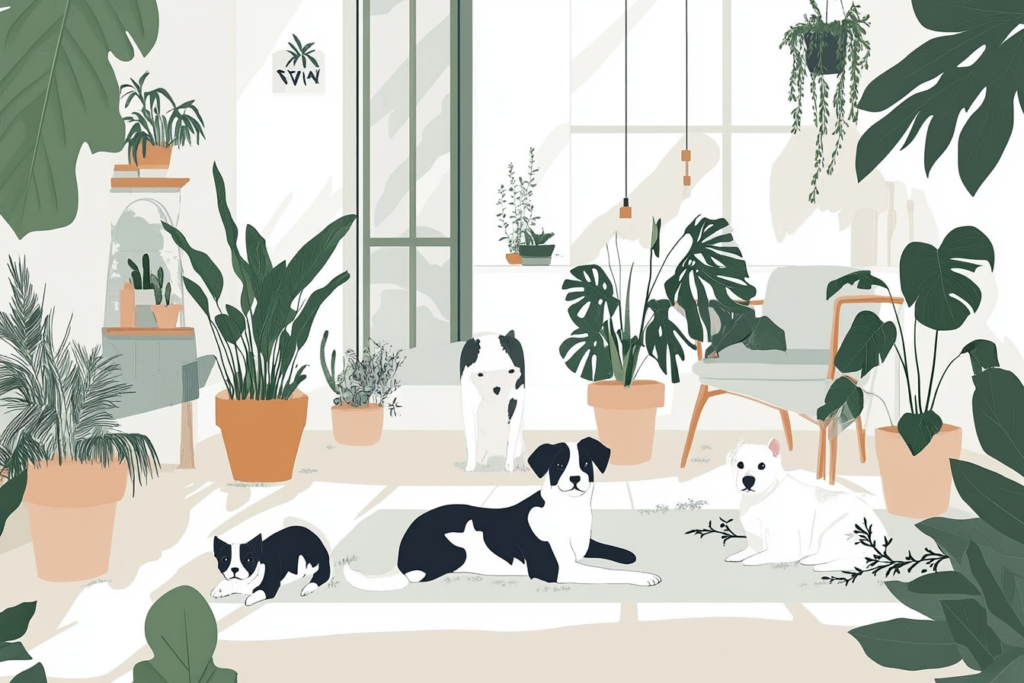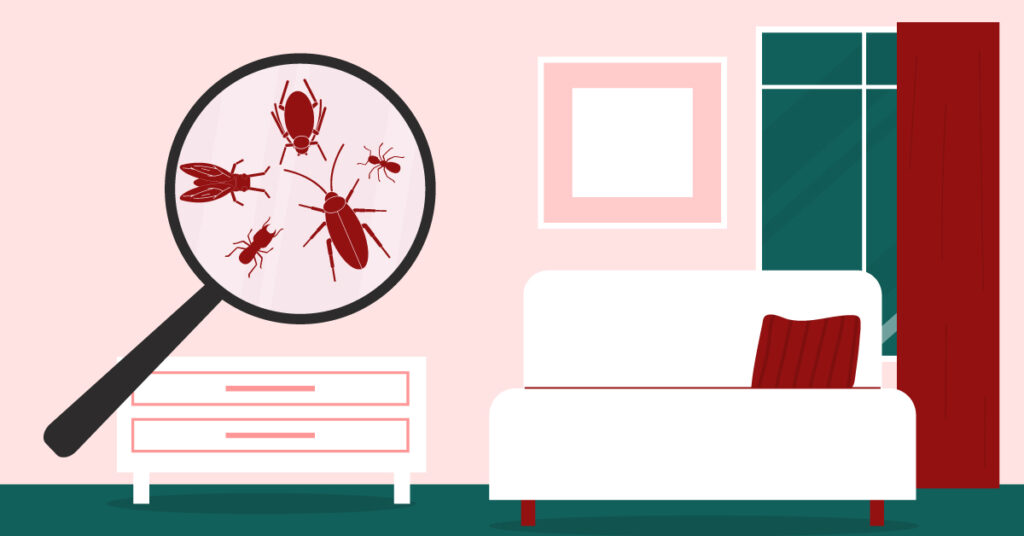Indoor plants can brighten up any home, purify the air, and do wonders for the indoor mood. However, many common houseplants and garden plants are toxic to our furry friends. If you’re a pet owner, it’s crucial to be aware of which plants can pose a risk and which ones are safe alternatives.
We’ll share ten common plants that are toxic to pets and provide pet-friendly alternatives that can still keep your home green and beautiful without compromising your pets’ safety.
1. Lilies
Lilies are likely one of the most toxic plants to cats and can cause kidney failure even if a small amount is ingested. They are particularly dangerous because cats can be affected even by ingesting pollen, so it’s best to avoid having lilies in a home with felines. Some varieties, such as the peace lily, are also toxic to dogs, causing gastrointestinal distress.
Symptoms of lily poisoning: vomiting, lethargy, lack of appetite, and severe kidney damage.
Alternative: Spider Plant
Spider plants are a great alternative to lilies. They are non-toxic to cats and dogs, easy to care for, and known for their air-purifying properties. Although some cats may find spider plants mildly hallucinogenic and nibble on them, they’re harmless.
2. Aloe Vera
While aloe vera is well-known for its medicinal properties for humans, it’s toxic to both cats and dogs. If ingested, it can cause diarrhea, vomiting, and lethargy due to the presence of compounds called saponins and anthraquinones.
Alternative: Haworthia
If you’re looking for a succulent that’s safe for pets, Haworthia is an excellent choice. It looks similar to aloe, with its spiky green leaves, but it poses no threat to cats or dogs. Plus, it’s low-maintenance and drought-tolerant, making it a great addition to any home.
3. Pothos

Pothos, also known as devil’s ivy, is a popular houseplant due to its ease of care and ability to grow in low-light conditions. However, it’s toxic to pets, particularly cats and dogs. If ingested, it can cause drooling, vomiting, difficulty swallowing and other forms of oral irritation.
Alternative: Boston Fern
The Boston fern is a safe, pet-friendly alternative that brings a lush, green vibe to your home. It thrives in indirect light and high humidity, making it a beautiful addition to bathrooms or kitchens. Best of all, it’s non-toxic to both cats and dogs.
4. Sago Palm
Sago palms are common in homes and gardens but are highly toxic to pets. Every single part of the plant, especially the seeds, which contain cycasin, a toxin that can cause vomiting, liver failure, and even death if ingested.
Alternative: Areca Palm
The Areca palm is a pet-safe alternative that brings a tropical feel to any room. It’s non-toxic to cats and dogs and is pretty easy to care for, thriving in bright, indirect light. With its feathery fronds, it’s a beautiful addition to any space.
5. English Ivy
English ivy is a climbing plant often used as ground cover, but it’s toxic to both dogs and cats. If consumed, it can cause gastrointestinal upset, drooling, vomiting, and abdominal pain. The plant’s leaves contain saponins, which can irritate the mucous membranes of pets.
Alternative: Swedish Ivy
For a safe and attractive trailing plant, Swedish ivy is a great option. It’s non-toxic to pets, easy to grow, and can tolerate various light conditions, making it perfect for hanging baskets or as a trailing plant on shelves.
6. Azaleas
Azaleas are popular outdoor shrubs known for their vibrant flowers. However, they contain grayanotoxins, which are highly toxic to pets, especially if large quantities are ingested. Symptoms of azalea poisoning in pets include vomiting, diarrhea, weakness, and potentially fatal cardiac issues.
Alternative: Camellia
If you’re looking for a flowering shrub that’s safe for pets, Camellia is a lovely option. It produces beautiful blooms in various colors and is also a non-toxic option, making it a safe choice for your garden or yard.
7. Snake Plant
The snake plant, also known as mother-in-law’s tongue, is an extremely popular choice for indoor decor due to its hardiness and low maintenance. However, it’s toxic to pets. Ingestion can cause nausea, vomiting, and diarrhea due to saponins.
Alternative: Calathea
Calathea plants are known for their stunning, patterned foliage and are completely safe for pets. They prefer indirect light and humid environments, making them perfect for homes with pets and plant enthusiasts who love decorative leaves.
8. Dieffenbachia
Also referred to as dumb cane, dieffenbachia is a common houseplant that can cause irritation and swelling of the mouth, drooling, and difficulty breathing if ingested by pets. This is due to the calcium oxalate crystals in its leaves and stems.
Alternative: Prayer Plant
The prayer plant is a safe and stunning alternative to dieffenbachia, known for its unique leaves that fold up at night. It’s non-toxic to both cats and dogs, and its vibrant foliage will brighten up any room in your home.
9. Philodendron
Philodendrons are another popular houseplant that can cause oral irritation, vomiting, and swelling in pets due to calcium oxalate crystals. They are particularly toxic to cats and dogs.
Alternative: Bamboo Palm
For a lush, green alternative to philodendron, the bamboo palm is a fantastic choice. It’s non-toxic to pets and helps purify the air, making it both a safe and beneficial addition to your home.
10. Oleander
Oleander is a highly toxic plant commonly used in landscaping. Ingesting a small amount can cause severe vomiting, slow heart rate, and, in extreme cases, death.
Alternative: Rosemary
If you’re looking for a safe, fragrant, and flowering alternative, consider rosemary. This herb is not only pet-friendly, but it can also be used in cooking. It produces small, delicate flowers and can be grown indoors or outdoors.
Keep your Pets Safe
When choosing plants for your home, it’s essential to be mindful of their toxicity. While some plants may be beautiful, they can be extremely dangerous if ingested. The good news is that there are plenty of pet-safe alternatives available that can provide the same aesthetic appeal without the dangers.
Always consult your veterinarian if you suspect your pet has ingested a toxic plant, and take preventive steps by replacing harmful plants with safe, pet-friendly options.
You might also be interested in: 6 Security Tips for Pet Owners To Consider




